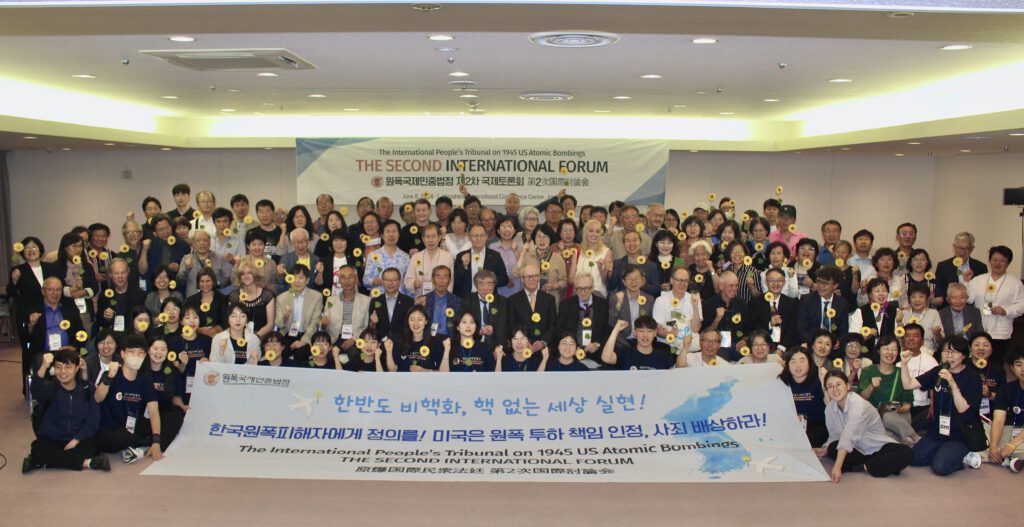By Amela Skiljan, LL.M.Eur
Vice-Chair IALANA Deutschland e.V. – Vereinigung für Friedensrecht – Deutsche Sektion der International Association of Lawyers Against Nuclear Arms, Marienstr. 19-20, 10117 Berlin, amela.skiljan@ialana.de
This article was first published in “Die Friedens-Warte Journal of International Peace and Organization”, December 2021, Issue 3-4, pp 418-444
DOI 10.35998/fw-2021-0020
ISBN 2009460321D
The Issue may be bought as print version or E-Book here: https://www.bwv-verlag.de/detailview?no=2009460321D
Abstract
Humanity has been developing legal responses to the threat of nuclear weapons since 1945. These responses are not only reflected in international treaties like the NPT or the TPNW, but also in the many norms derived from international humanitarian law, human rights law, environmental law and international criminal law. Many of them are of a customary nature, which makes them binding for all states, such as the general prohibition on the use and threat of use of nuclear weapons. This paper shows that many norms from different fields of international law reinforce each other in confirming the illegality of nuclear weapons in various aspects. In this regard, the TPNW is a landmark in nuclear disarmament, which not only confirms existing law, but develops it further.
Seit 1945 ist die Menschheit mit der Bedrohung durch Atomwaffen konfrontiert, und seither gab es rechtliche Antworten auf diese Bedrohung. Diese spiegeln sich nicht nur in internationalen Verträgen wie dem NVV oder dem AVV wieder, sondern auch in vielen Normen, die sich aus dem humanitären Völkerrecht, den Menschenrechten, dem Umweltrecht oder dem internationalen Strafrecht ergeben. Viele dieser Normen haben Gewohnheitscharakter, was sie für alle Staaten verbindlich macht, wie das generelle Verbot des Einsatzes und der Androhung des Einsatzes von Kernwaffen. Dieser Beitrag zeigt, dass viele Normen aus verschiedenen Bereichen des Völkerrechts sich gegenseitig in der Bestätigung der Illegalität von Atomwaffen in verschiedenen Aspekten bekräftigen. In dieser Hinsicht ist der AVV ein Meilenstein der nuklearen Abrüstung, der nicht nur bestehendes Recht bestätigt, sondern es auch weiterentwickelt.
Keywords: nuclear weapons, international law, customary law, disarmament, NPT, TPNW
Download the full article below or here
Download the overview (table) Are Nuclear Weapons illegal? below or here

